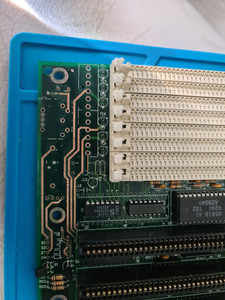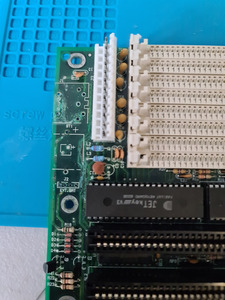First post, by vacatedboat
This is my first battery corrosion removal process of a 386 board. Just after feedback. The underside of the board had no damage.
I plan to re tin and then coat with either green nail polish or try and get formal coating.
Thanks for looking

